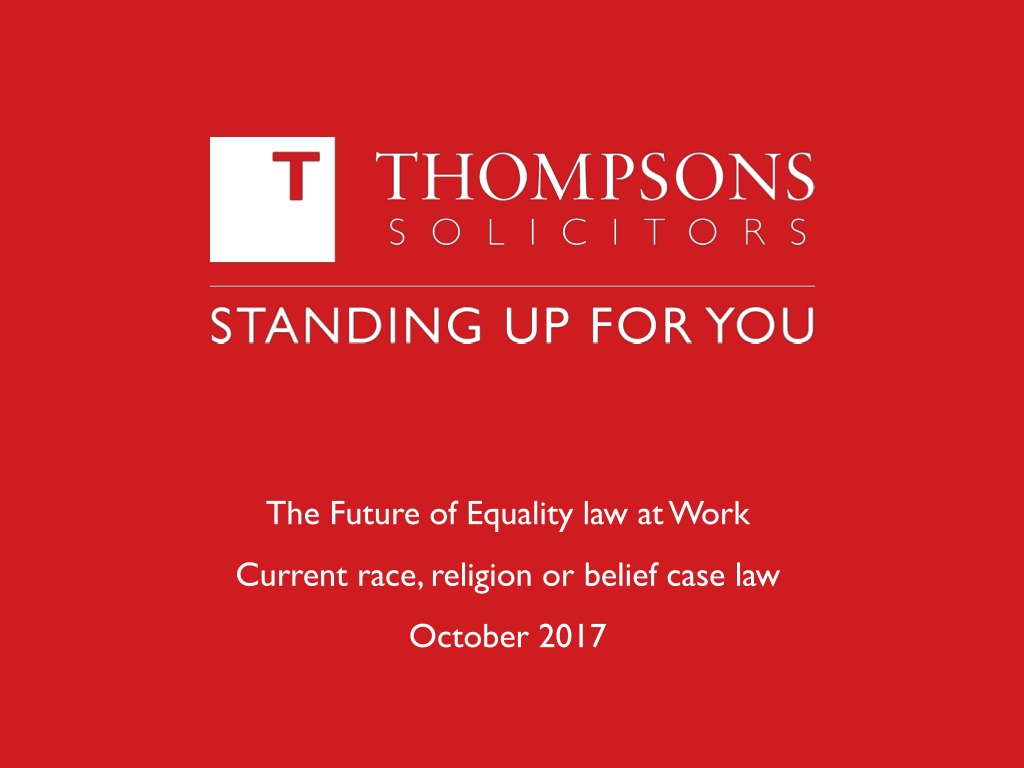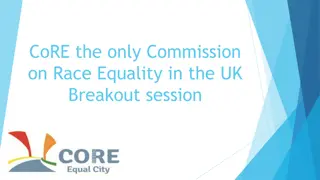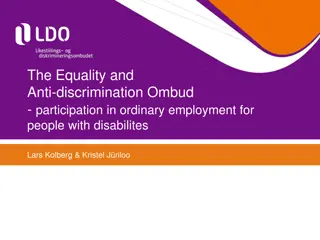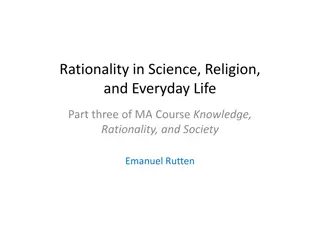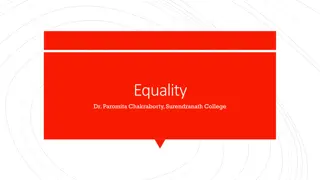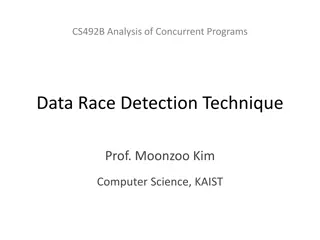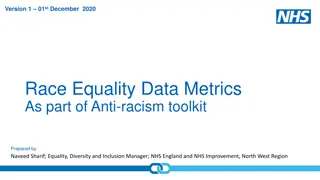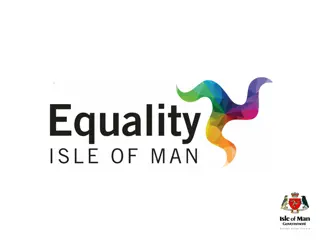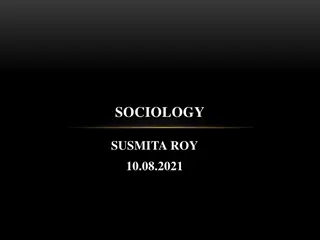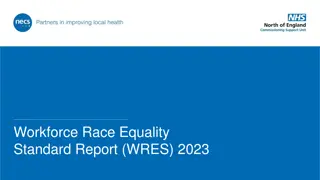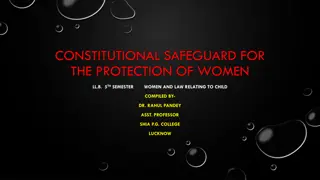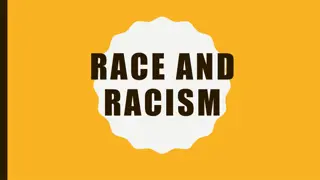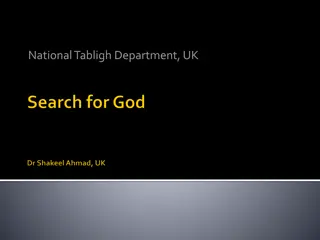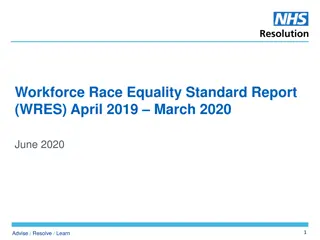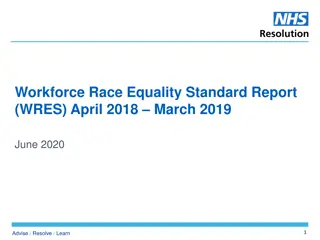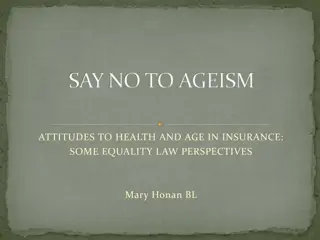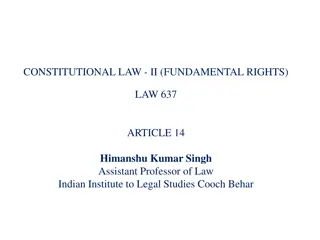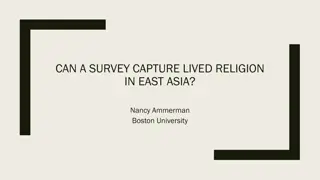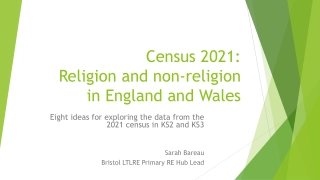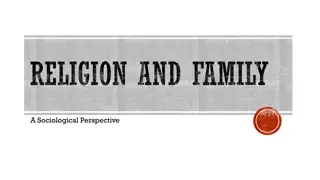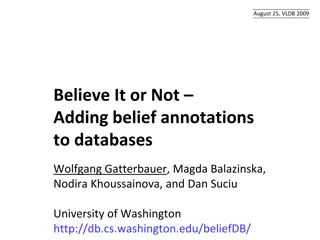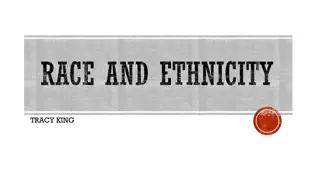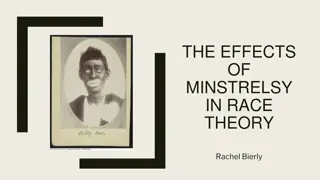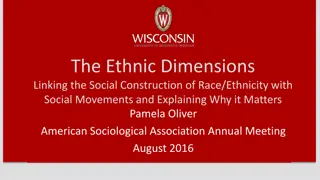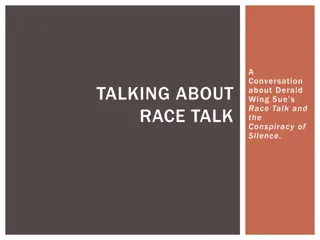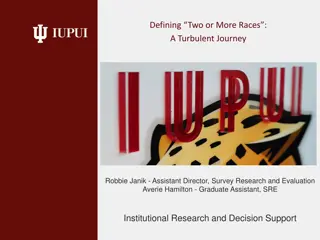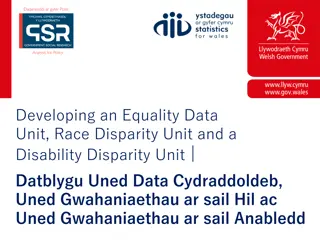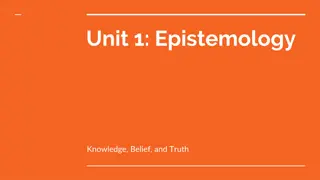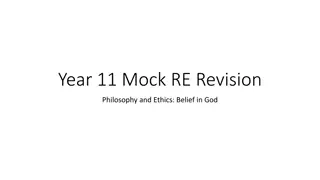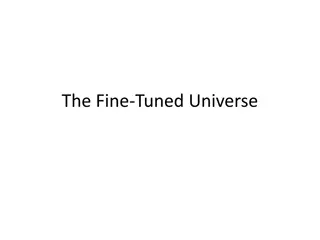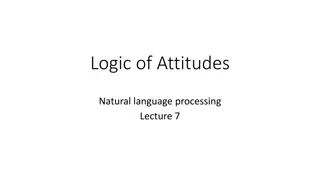Future of Equality Law at Work: Race, Religion, & Belief (October 2017)
Explore the future of race, religion, and belief discrimination post-Brexit, focusing on case law developments. Delve into the origins of discrimination laws, including Equal Treatment Directive 2000/78 and Equality Act 2010. Dive into Article 9 of the ECHR, examining the right to freedom of thought, conscience, and religion, along with manifestations of belief.
Download Presentation

Please find below an Image/Link to download the presentation.
The content on the website is provided AS IS for your information and personal use only. It may not be sold, licensed, or shared on other websites without obtaining consent from the author. Download presentation by click this link. If you encounter any issues during the download, it is possible that the publisher has removed the file from their server.
E N D
Presentation Transcript
The Future of Equality law at Work Current race, religion or belief case law October 2017
Overview Future of race, religion or belief discrimination in light of our impending exit from the EU Look at the origins of the law on race, religion or belief discrimination Focus on some recent developments in the case law.
Religion or Belief EQUAL TREATMENT DIRECTIVE 200/78 RELIGION OR BELIEF REGULATIONS 2003 EQUALITY ACT 2010
Article 9 of the ECHR Article 9 1. Everyone has the right to freedom of thought, conscience and religion: this right includes freedom to change his religion or belief and freedom, either alone or in the community with others and in public or private, to manifest his religion or belief, in worship, teaching, practice and observance. Belief must : Be worthy of respect in a democratic society Concern a weighty and substantial aspect of human life and behaviour; and Attain a certain level of cogency, seriousness, cohesion and importance (Campbell and anor v UK [1982] EHRR 293) and Grainger Plc v Nicholson [2010] ICR 360
Manifestation of Belief - 1 Article 9 2. Freedom to manifest one s religion or beliefs shall be subject only to such limitations as are prescribed by law and necessary in a democratic society in the interests of public safety, for the protection of public order, health or morals or for the protection of the rights and freedoms of others. Achbita and anor v G4S Secure Solutions NV Case C-157/15 ECJ Does an employers rule which prohibits employees from wearing any religious, political or philosophical symbols amount to direct discrimination under the Equal Treatment Directive? Bougnaoui and anor v Micropole SA C-188/15 Can the fact that an employer took into account the customers wishes (that an employee should not wear a headscarf) amount to a genuine occupational requirement?
Manifestation of belief - 2 The manifestation of a religious belief must be genuine - Gareddu v London Underground [2017] IRLR 404 Proselytising one s religion Trayhorn v The Secretary of State for Justice UKEAT/0304/16
Race RACE RELATIONS ACT 1976 THE RACE RELATIONS ACT 1976 (AMENDMENT) REGULATIONS 2003 EQUALITY ACT 2010
Race Discrimination Equality Act 2010 s. 9 Race includes (a) colour; (b) nationality; (c) ethnic or national origins. (4) The fact that a racial group comprises two or more distinct racial groups does not prevent it from constituting a particular racial group. (5) A Minister of the Crown must amend this section so as to provide for caste to be an aspect of race Racial Discrimination Directive Art 1 a framework combating discrimination on grounds of racial or ethnic origin
Burden of Proof Equality Act 2010 136 Burden of proof (1) This section applies to any proceedings relating to a contravention of this Act. (2) If there are facts from which the court could decide, in the absence of any other explanation, that a person (A) contravened the provision concerned, the court must hold that the contravention occurred. Article 8 1. Member States shall take such measures as are necessary, in accordance with their national judicial systems, to ensure that, when persons who consider themselves wronged because the principle of equal treatment has not been applied to them establish, before a court or other competent authority, facts from which it may be presumed that there has been direct or indirect discrimination, it shall be for the respondent to prove that there has been no breach of the principle of equal treatment. Efobi v Royal Mail Group UKEAT 020316
Indirect Race Discrimination S. 19 EqA 2010 Where an employer has: i. a provision, criterion or practice which is applied to all employees ii. but which puts those of a particular race etc. at a particular disadvantage when compared with others; and iii. it puts the person at a particular disadvantage; and iv. the employer cannot show it to be a proportionate means of achieving a legitimate aim Essop and ors v Home Office (UK Border Agency) Naeem v Secretary of State for Justice
Conclusion LELR online www.Thompsons.law.co.uk
